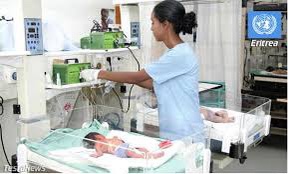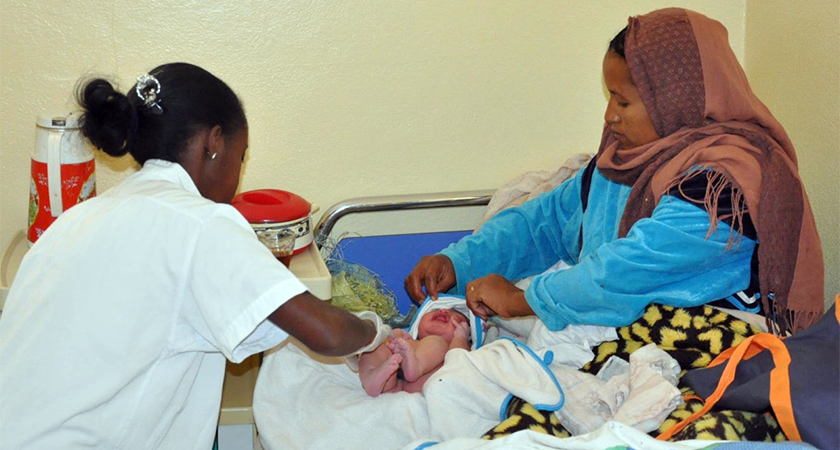Article by: Auet Melache – @EriStarukMedia
Eritrea, a small African nation tucked away in the Horn of Africa, has long struggled with poverty and a lack of access to basic healthcare. However, in recent years, the country has undergone a healthcare revolution that has caught the attention of the global community. With a focus on preventative care, community health workers, and cutting-edge technology, Eritrea has managed to drastically improve the health outcomes of its citizens. In this article, we’ll take a closer look at the Eritrean healthcare revolution and explore whether it could serve as an inspiration for other nations.

A Brief Overview of Eritrea’s Healthcare System
Eritrea is a country of approximately 3.5 million people, and its healthcare system is primarily run by the government. In the past, the country has faced a number of serious health challenges, including a high prevalence of malaria, malnutrition, and tuberculosis. However, in recent years, the government has made significant investments in healthcare infrastructure and technology.
One of the key features of Eritrea’s healthcare system is its focus on preventative care. The government has implemented a comprehensive system of community health workers, who are responsible for visiting households to provide basic health education, monitor for early warning signs of disease, and refer patients to hospitals when necessary. This system has helped to improve access to healthcare in remote and rural areas, where healthcare services are often scarce.
In addition to its focus on preventative care, Eritrea has also invested in cutting-edge healthcare technology. The country has implemented a system of electronic medical records, which allows healthcare providers to access patient information quickly and easily. Eritrea has also developed a number of innovative healthcare technologies, including a portable ultrasound machine that can be used in remote areas.
The Results of Eritrea’s Healthcare Revolution
Thanks to its investments in healthcare infrastructure and technology, Eritrea has managed to achieve some impressive health outcomes in recent years. The country has reduced its infant mortality rate from 70 deaths per 1,000 births in 1991 to 27 deaths per 1,000 births in 2021. Eritrea has also made significant progress in reducing the prevalence of major diseases such as malaria and tuberculosis.
Another key factor contributing to Eritrea’s healthcare success is its commitment to universal healthcare coverage. The government provides free healthcare services to all citizens, regardless of income. This has helped to ensure that even the poorest citizens have access to life-saving healthcare services.

Could Eritrea’s Healthcare Revolution Inspire Other Nations?
Eritrea’s healthcare revolution has caught the attention of the global community, and many experts believe that the country’s experience could serve as an inspiration for other nations. One of the key lessons of Eritrea’s healthcare revolution is the value of preventative care. By investing in community health workers and focusing on early detection and prevention of disease, Eritrea has managed to improve health outcomes without breaking the bank.
One of the key features of Eritrea’s healthcare system is its focus on preventative care.
Another lesson from Eritrea’s healthcare revolution is the importance of universal healthcare coverage. By providing free healthcare services to all citizens, Eritrea has ensured that even the poorest individuals have access to life-saving healthcare services. This has helped to reduce healthcare disparities and improve health outcomes across the country.
Finally, Eritrea’s investments in cutting-edge healthcare technology have helped to improve the quality and efficiency of healthcare services. By implementing electronic medical records and developing innovative healthcare technologies, Eritrea has managed to provide high-quality healthcare services even in remote and rural areas.

In conclusion, Eritrea’s healthcare revolution offers valuable lessons for other nations looking to improve their healthcare systems. By investing in preventative care, providing universal healthcare coverage, and leveraging cutting-edge technology, countries can achieve significant improvements in health outcomes. Eritrea’s experience shows that with the right investments and commitment, it is possible to achieve healthcare success even in the face of significant challenges.

Comments are closed.